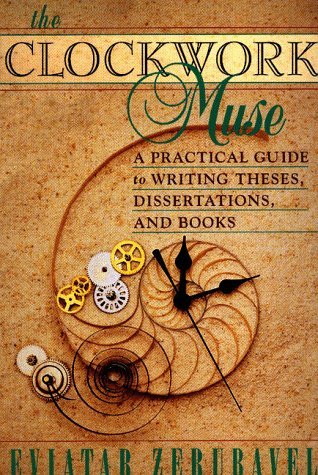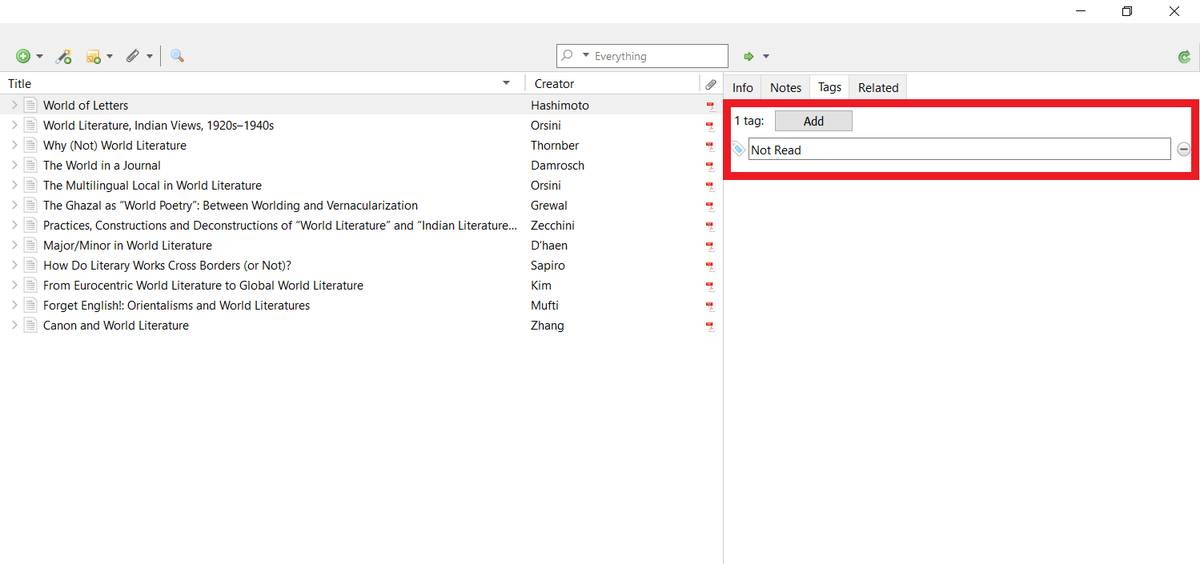
How I finished my PhD dissertation in 12 months:
First a bit of context:
I'm a first-gen PhD with a working class background.
Mother, seamstress; father, clerk.
Social capital: Zero.
I'm a first-gen PhD with a working class background.
Mother, seamstress; father, clerk.
Social capital: Zero.
I did my PhD in comparative literature from Binghamton University, NY as a Fulbright fellow from 2017-2022.
Before going to Binghamton, I was enrolled in a PhD program in a Pakistani university in 2014.
I didn't like it and dropped out.
Before going to Binghamton, I was enrolled in a PhD program in a Pakistani university in 2014.
I didn't like it and dropped out.
Then I applied to 10 universities in the US.
Got rejected by every single one.
I applied for a Fulbright fellowship in 2015.
Got rejected from there too.
Got rejected by every single one.
I applied for a Fulbright fellowship in 2015.
Got rejected from there too.
I applied again the next year, and got a five-year, fully-funded Fulbright grant for my PhD.
This is important because I didn't have to work during my PhD.
This is important because I didn't have to work during my PhD.
Now let's dive in:
By fall 2020, I'd finished my coursework, taken my comprehensive exams, and defended my dissertation proposal.
It was time to start working on my dissertation.
By fall 2020, I'd finished my coursework, taken my comprehensive exams, and defended my dissertation proposal.
It was time to start working on my dissertation.
I started by going to the grad school's website, and carefully read what the requirements of a PhD dissertation were.
The grad school required a dissertation to be at least 200 pages.
1 page = 250 words in 12 points Times font.
So,
200x250=50,000 words
The grad school required a dissertation to be at least 200 pages.
1 page = 250 words in 12 points Times font.
So,
200x250=50,000 words
I added 10,000 words and decided to write 60,000 words (you'll see the reason for doing this in a bit).
First step:
I broke down the 60k words:
First step:
I broke down the 60k words:
60k words in 12 months, which means
30k words in 6 months, which means
5k words in 1 month, which means
1250 words in 1 week (of 5 working days), which means
250 words a day
60k words in 12 months - overwhelming
250 words a day - doable
30k words in 6 months, which means
5k words in 1 month, which means
1250 words in 1 week (of 5 working days), which means
250 words a day
60k words in 12 months - overwhelming
250 words a day - doable
Second step:
I divided my time in two types:
Type A: when I'm at my productive best; reserved for writing (10am-1pm)
Type B: when writing doesn't come as easily; reserved for reading and taking notes (1:30pm-4pm)
I divided my time in two types:
Type A: when I'm at my productive best; reserved for writing (10am-1pm)
Type B: when writing doesn't come as easily; reserved for reading and taking notes (1:30pm-4pm)
If you want to read about Type A, B times, take a look at Eviatar Zerubavel's wonderful book "The Clockwork Muse." 

I started writing on 1 Jan 2021, and stuck to a disciplined daily routine.
Exercise in the morning
Work from 9:30am-4:30pm
Family time in the evening
Weekends for house chores (laundry, cleaning, grocery)
Exercise in the morning
Work from 9:30am-4:30pm
Family time in the evening
Weekends for house chores (laundry, cleaning, grocery)
By 30 June, I had written 29,500 - only 500 less than my target.
I sent them to my supervisor for her feedback.
I sent them to my supervisor for her feedback.
Everything was going according to the plan...
and then one day my wife was told that her gallbladder had been infected and that she needed immediate surgery.
I dropped everything.
Her surgery went well, and she recovered in two weeks.
and then one day my wife was told that her gallbladder had been infected and that she needed immediate surgery.
I dropped everything.
Her surgery went well, and she recovered in two weeks.
I wasn't worried about my dissertation during these two weeks.
I had a cushion of 10k words that I had put in in the start.
I had a cushion of 10k words that I had put in in the start.
After my wife regained her health, I went back to my routine.
By 31 Oct, I had 45k words.
By 31 Oct, I had 45k words.
In Nov, I realized I'd be soon on the job market and, therefore, I should get my application materials ready.
I spent the next six weeks drafting my cover letter, and statements on research, teaching, and diversity. Total word count: 7,000 words.
I spent the next six weeks drafting my cover letter, and statements on research, teaching, and diversity. Total word count: 7,000 words.
The last two weeks in Dec I spent on writing a
(7,000 words) journal article for a special issue of "Comparative Literature Studies."
Based partly on my dissertation, this article really helped me sharpen my argument.
(7,000 words) journal article for a special issue of "Comparative Literature Studies."
Based partly on my dissertation, this article really helped me sharpen my argument.
By 31 Dec 2021, I had written nearly 60k words.
It was just that not all of them *in* my dissertation.
It was just that not all of them *in* my dissertation.
In Jan 2022, I received my supervisor's (detailed) feedback on the first part of my dissertation.
I revised it and got back to working on the second part.
I finished the second part by the end of Feb and sent it to my supervisor.
I revised it and got back to working on the second part.
I finished the second part by the end of Feb and sent it to my supervisor.
I spent the first two weeks of March on major revision.
During the last last two weeks, I worked on rhetorical signposting and polishing up my dissertation.
I submitted it in the first week of April and scheduled my defense for 13 May.
During the last last two weeks, I worked on rhetorical signposting and polishing up my dissertation.
I submitted it in the first week of April and scheduled my defense for 13 May.
The defense went very well.
I'd practiced my 16-page long presentation so many times I could recited it from memory.
And on 18 May, I got hooded and officially became Dr. Mushtaq Bilal.
I'd practiced my 16-page long presentation so many times I could recited it from memory.
And on 18 May, I got hooded and officially became Dr. Mushtaq Bilal.

Here are the things that worked for me:
1. Before starting my PhD, I 'd written for publications like the Washington Post, the LA Times, and Dawn (Pakistan). I wasn't new to writing.
1. Before starting my PhD, I 'd written for publications like the Washington Post, the LA Times, and Dawn (Pakistan). I wasn't new to writing.
2. I had a VERY supportive and encouraging supervisor who was both generous and exacting - generous as a person, exacting as a scholar.
3. My wife also played a HUGE role in helping me get over the line.
In addition to the much-needed emotional support, she made me stick to a regular diet that made sure I didn't fall sick or put on unhealthy weight.
In addition to the much-needed emotional support, she made me stick to a regular diet that made sure I didn't fall sick or put on unhealthy weight.
That's it for now.
If you found this thread helpful:
1. Scroll to the top and retweet the first tweet to share it with your friends and colleagues.
2. Follow me @MushtaqBilalPhD for more threads on academic writing.
If you found this thread helpful:
1. Scroll to the top and retweet the first tweet to share it with your friends and colleagues.
2. Follow me @MushtaqBilalPhD for more threads on academic writing.
• • •
Missing some Tweet in this thread? You can try to
force a refresh








